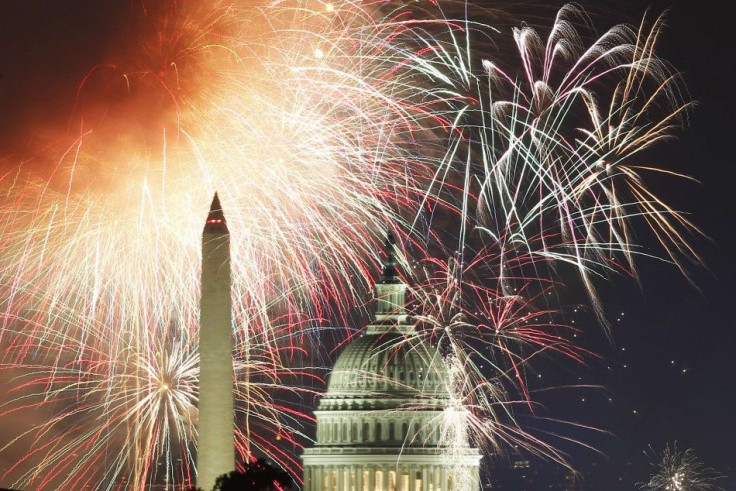On This July Fourth, Read The Declaration of Independence Aloud
Opinion

My most memorable Fourth of July included pyrotechnics -- the verbal kind, courtesy of a trial lawyer and the Declaration of Independence. I was amazed the lawyer could enthrall the kids by his dramatic reading of the Declaration at a picnic, but hearing the words for myself I realized its language is over-the-top. If talk radio had existed in 1776, the Declaration would have been the script.
You may think you know the Declaration, but if you're like most folks, what you remember are its oft-quoted catch phrases from the preamble: self-evident truths, unalienable rights, life, liberty and the pursuit of happiness, and so on.
A closer reading (happily, the text is short) shows that it is truly a declaration, not a refutation. Instead of deconstructing the divine right of kings, or probing the inadequacies of a parliament co-existing with a monarch, the Declaration simply states that man's rights come from the Creator and (in respect to these rights) the power to govern flows up from the governed.
Next, the Declaration adopts an almost apologetic tone, acknowledging that a mass rejection of an accustomed form of government is a serious matter, and the colonies do so after much patient sufferance under a system that has deteriorated into absolute Despotism.
The text continues with a list of offenses by the king against the people of the colonies. No dry recital this, delivered in an appropriately angry voice (think: trial lawyer) the list has plenty of zip and zing for the kids. For example, this item from the list just begs for bombast: He [the king] has plundered our seas, ravaged our Coasts, burnt our towns, and destroyed the lives of our people.
Reading the Declaration aloud on the Fourth for the children also connects the youngest among us with those who first heard these words 236 years ago. Heard is the important word, as that's how most people learned of the Declaration -- their reaction to it must have been colored by the speaker's delivery. The writers must have realized this too, as they struck a balance with language that would make a logical argument to a reader, while simultaneously arousing outrage in a listener.
Finally, such a reading can help (in a small way) correct an educational deficiency. Sadly, many school systems present the Declaration as just another bit in a mass of social rights documents, or, worse, an example of how the colonial elites justified their power grab from Britain's elites while continuing the oppression of the lower classes. Letting the kids hear the words of the Declaration for themselves can get them thinking and, hopefully, they will realize this document is unique, important and liberating -- definitely not a tool of oppression.
So this July 4th, feed the kids their burgers, fried chicken, tofu hot dogs or whatever, then sit 'em down and read the Declaration out loud, with plenty of gusto. Have them boo and hiss the king (good for audience participation) just like they did in 1776.
The idea of America was born in exuberance and reading the Declaration today lets us share in those heady sentiments of long ago, when the fireworks came from words and not from the end of a lit fuse.
Joanne Butler is a graduate of the Kennedy School of Government at Harvard University and a former professional Republican staff member at the U.S. House of Representatives Ways and Means Committee.
© Copyright IBTimes 2024. All rights reserved.











